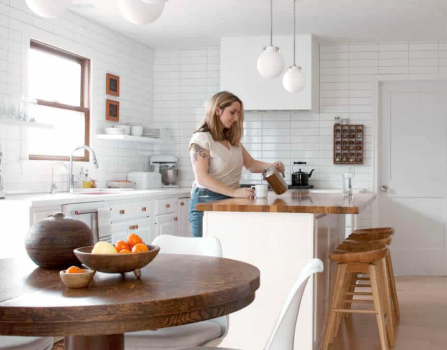
Home renovations can be exciting but can also lead to significant financial strain if not managed properly. Whether you’re looking to stay in your home long-term or increase its market value for a sale, the costs associated with renovations can quickly spiral out of control. To avoid breaking your budget, follow these practical tips for a successful and cost-effective home makeover.
Plan Your Renovation Project and Shop Smart
Before diving into a renovation project, take the time to clearly define what changes you want to make to your home. Once you know the scope of your renovations, it’s important to shop around to get the best value. Gather multiple quotes from contractors or stores, read online reviews, and ask for references. If possible, visit finished projects to get a feel for the quality of work. You can also talk to friends and family who have done similar renovations to learn from their experiences.
Though it might seem like extra work, doing your research will help you identify where you can save money and where it’s worth spending a bit more. If the full renovation seems too costly, consider breaking it down into smaller, more affordable projects to spread out the costs. Don’t rush into spending—gather all the information you need before committing your finances.
Consider DIY Carefully
DIY renovations can be a great way to save on labor costs, but they come with their own set of challenges. While it may seem like an easy way to cut costs, DIY projects require time, skill, and sometimes even permits. Before deciding to take on a project yourself, ask yourself the following:
- Do I have the necessary skills to do this safely and correctly?
- Am I familiar with the local safety codes and regulations?
- Have I obtained the necessary permissions from my building or strata association?
- How will this impact my home insurance coverage?
- Can I balance my other responsibilities (work, family, etc.) while doing the renovations?
If you’re not confident in your ability to complete the work correctly, it’s best to hire a professional. Remember that fixing a DIY mistake can end up costing much more than hiring an expert from the start.
Set a Realistic Budget and Account for Unexpected Costs
Home renovations can quickly get expensive if you’re not careful with your spending. In 2022, Canadian homeowners were expecting to spend an average of $25,000 on renovations. While it’s tempting to aim for your dream renovation, it’s crucial to base your spending on your actual budget, not what others are doing.
You’ll need to decide if you’ll pay out of pocket using savings or if you’ll borrow money, perhaps through a home equity line of credit (HELOC). While going into debt should be a last resort, leaving the project unfinished due to lack of funds can be just as problematic. A balanced approach using a combination of savings and credit might be the best solution.
Save for Your Renovation Ahead of Time
If you’re not in a hurry to start your renovation, consider setting a savings goal. Putting aside money little by little can add up over time. For example, saving $50 a week would give you $2,600 in just one year. If you’re planning ahead for a larger renovation, this method can help avoid the financial pressure of funding it all at once.
However, even if you’ve planned ahead, renovations often end up costing more than expected. Just as you would with emergency savings, leave some wiggle room in your renovation budget for unforeseen expenses. Have a contingency plan in place for when costs overrun, and make sure you can stick to it if unexpected issues arise during the renovation.
Balance Wants with Needs
It’s easy to get carried away with upgrades that enhance the look of your home, but it’s important to prioritize what your home truly needs. For example, while a shiny new kitchen is appealing, it doesn’t do much good if your roof starts leaking or if your plumbing is outdated. If you live in a strata building, spending your renovation budget on essential maintenance rather than aesthetic upgrades might save you more in the long run.
Also, consider the overall balance of your home. Spending all your budget on one room can leave the rest of your home feeling neglected. Ensure that your renovations are cohesive and don’t leave one room feeling out of place compared to the rest of the house.
Conclusion
Home renovations can enhance your living space, but managing costs effectively is key to avoiding financial strain. By setting clear goals, researching costs, deciding carefully between DIY and professional work, and sticking to a realistic budget, you can keep your renovation project on track without exceeding your financial limits. Take the time to prioritize needs over wants and ensure that any renovations you make are a smart financial decision.









